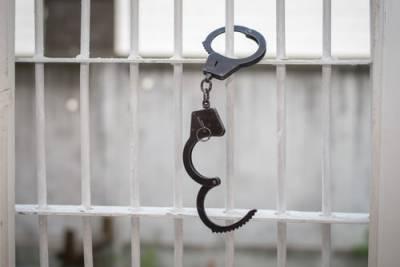 The United States has one of the most extensive prison systems in the world, with nearly two million people being held in confinement in federal and state prisons, local jails, and other correctional facilities. While the total prison population has decreased in recent years, the number of people in the U.S. who are incarcerated continues to outpace other countries. As people continue to be convicted of crimes and imprisoned, advocates have questioned whether the prison system is serving its purpose of keeping people safe. A recent book by a former editor of the New York Times and an advocate for criminal justice reform has looked at how the focus on punishing people rather than helping prevent future crimes has led to an increasingly larger prison system that does not actually improve public safety.
The United States has one of the most extensive prison systems in the world, with nearly two million people being held in confinement in federal and state prisons, local jails, and other correctional facilities. While the total prison population has decreased in recent years, the number of people in the U.S. who are incarcerated continues to outpace other countries. As people continue to be convicted of crimes and imprisoned, advocates have questioned whether the prison system is serving its purpose of keeping people safe. A recent book by a former editor of the New York Times and an advocate for criminal justice reform has looked at how the focus on punishing people rather than helping prevent future crimes has led to an increasingly larger prison system that does not actually improve public safety.
What's Prison For?, a book written by Bill Keller, looks at the issues that have led to the current system of mass incarceration in the United States. When the "war on drugs" began in the 1970s, the rates of incarceration began to increase, and this issue became worse due to laws passed in subsequent decades. The Anti-Drug Abuse Act of 1986 put mandatory minimum sentences in place for many drug crimes, as well as disproportionate punishments for offenses related to crack cocaine, resulting in many Black defendants receiving longer sentences than white offenders charged with similar crimes.
The Violent Crime Control and Law Enforcement Act of 1994, which was championed by then-Senator Joe Biden, also led to longer sentences and harsher punishments for many people. This law also eliminated the ability of prisoners to receive Pell Grants that would allow them to pursue a college education, making it more difficult for them to provide for themselves and avoid future criminal activity after being released. To make matters worse, the United States has allowed private, for-profit prisons to function, and since these facilities have an incentive to keep people incarcerated, prisoners are less likely to be released early.
By looking at the history of incarceration and the motives behind the prison system, Keller has raised the question of exactly why people are imprisoned. Generally, the justice system is meant to punish people for violating the law, act as a deterrent by making sure people understand the consequences of criminal behavior, and rehabilitate offenders to ensure that they can re-enter society after being released and avoid re-offending in the future. Unfortunately, the policies used in the prison system over the past several decades have de-emphasized rehabilitation, increasing the likelihood of recidivism after prisoners are released.
Keller and other criminal justice reform advocates have called for a renewed focus on rehabilitation, as well as a reduction in the overall prison population and an emphasis on humanitarian issues that affect prisoners. Reforms that may help address these issues include abolishing mandatory minimum sentences, ensuring that judges give people the least severe punishments that are appropriate based on the circumstances of a case, providing prisoners with mental health and addiction treatment, ensuring that prisoners have educational opportunities, using "restorative justice" programs meant to encourage empathy and responsibility, and ensuring that prisoners' rights to dignity and privacy are protected.
At Woolf & Ross Law Firm, LLC, we understand the issues that affect prisoners and people who are facing criminal charges, and we work to protect the rights of those who are involved in the justice system. Whether you have been charged with a crime and need to determine how to defend yourself and avoid a prison sentence, or you are a prisoner who needs to advocate for your rights and make sure you are treated fairly and justly, we can provide the legal help you need. Contact our Hartford criminal defense attorney today at 860-290-8690 to arrange a free consultation and learn how we can help with your case.
Sources:
https://reason.com/2022/09/30/whats-prison-for/
https://www.theguardian.com/books/2022/sep/30/whats-prison-for-review-bill-keller-marshall-project
https://www.brennancenter.org/our-work/analysis-opinion/book-review-whats-prison
 50 Founders Plaza
50 Founders Plaza

